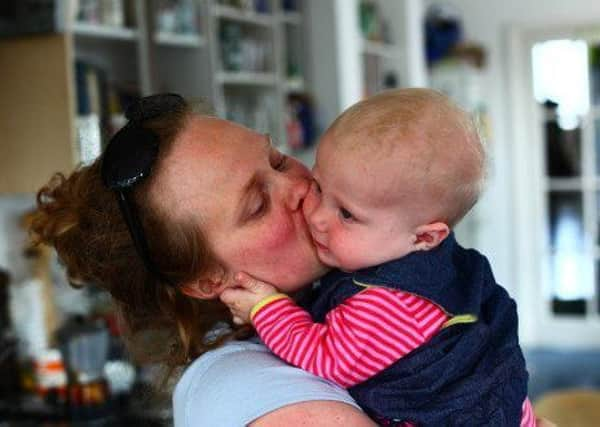The Great nhs Gamble - Day Three: Pressure rises on maternity units as problems mount


Today AASMA DAY looks at maternity and the fears surrounding its future in the face of demand.
Greater numbers of women giving birth later in life, an ageing midwife profile and a nationwide shortage of the profession is putting unprecedented pressure on maternity services.
Advertisement
Hide AdAdvertisement
Hide AdAnd the situation could reach crisis point as analysis of the NHS Sustainability and Transformation plans shows around 11 maternity and neonatal units across England may be facing closure or consolidation.
The Royal College of Midwives was concerned that many of the plans - particularly those outside of London - do not give many details about maternity changes and transformations.
The plans include more midwifery units and birth centres and improving the choice and personalisation of maternity services.
Advertisement
Hide AdAdvertisement
Hide AdJacque Gerrard, director for England at the Royal College of Midwives, said: “There is a lot going on but it is still very early days.
“There are ambitious things such as looking at more personalised care plans, better unbiased information and digitalised maternity tools that women can access. There is also work going on into looking at improving antenatal and postnatal care and trying to do it via a personalised maternity care budget.
“There are pioneer sites in Cheshire and Merseyside testing this model.
“In a nutshell, it means where the woman goes, the budget should follow her such as she wants for things such as hypnotherapy on top of her agreed care. Woman on the pilot sites will not be asked to pay any top-ups.
Advertisement
Hide AdAdvertisement
Hide Ad“But until we test it, we don’t know how the personalised maternity care budget will work.”
Dr Gerrard says evidence shows births in midwifery units are safe.
She said: “Midwives are skilled and educated and trained to degree level and base their care on evidence.
“There are certain women with complications you would not advise to go in there.
Advertisement
Hide AdAdvertisement
Hide Ad“Midwives view it as a positive to have more births at home and in midwifery units if that is what the woman wants.
“At the end of the day, it is the woman’s choice and it is up to the midwife to make it happen.
“Regarding the issue that sometimes things go wrong in labour, midwives are skilled and trained to pick up on deviations from the norm sooner rather than later and women are transferred to a consultant when needed.”
Dr Gerrard says the midwifery transformation plans include more midwifery units, more professional and family friendly care and being able to support women to have choices based on their individual needs and circumstances.